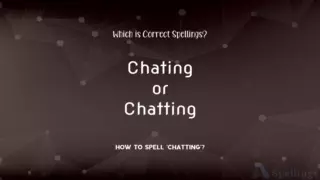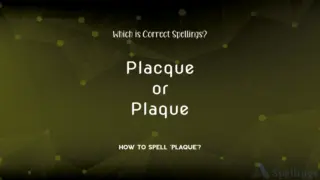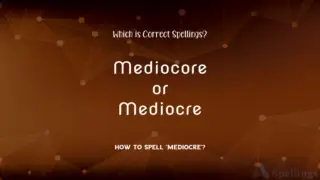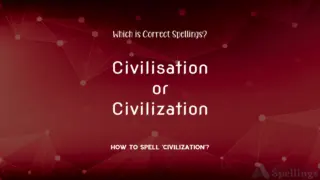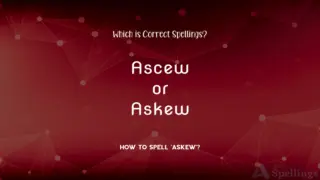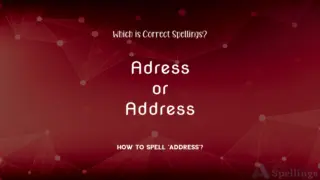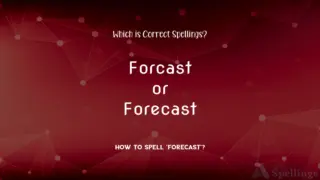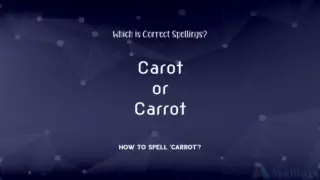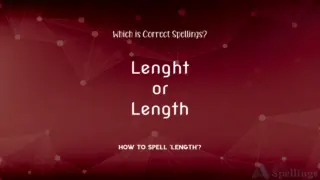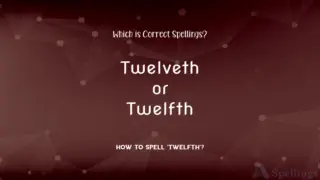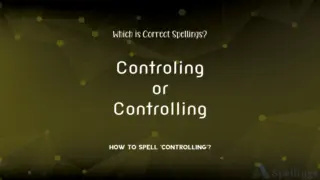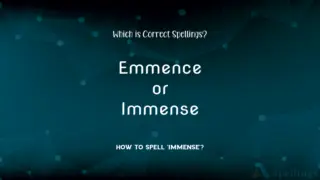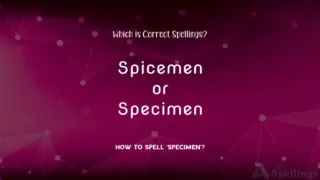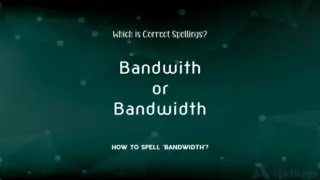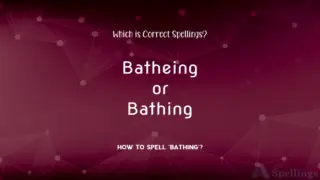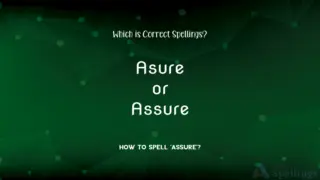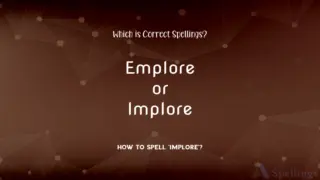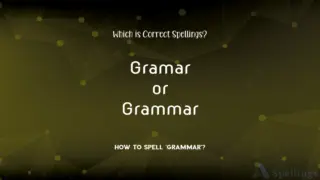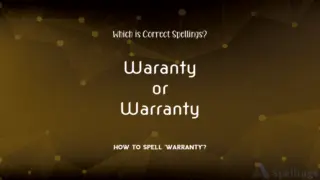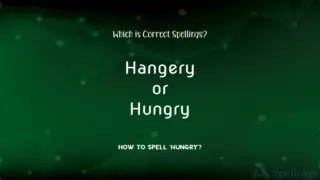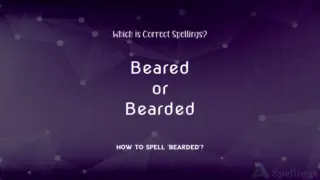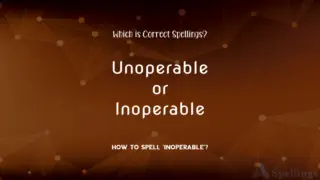Decieve or Deceive: Which is Correct Spellings?
The incorrect spelling is "decieve," while the correct spelling is "deceive." "Deceive" means to cause someone to believe something that is not true, typically in order to gain some personal advantage.
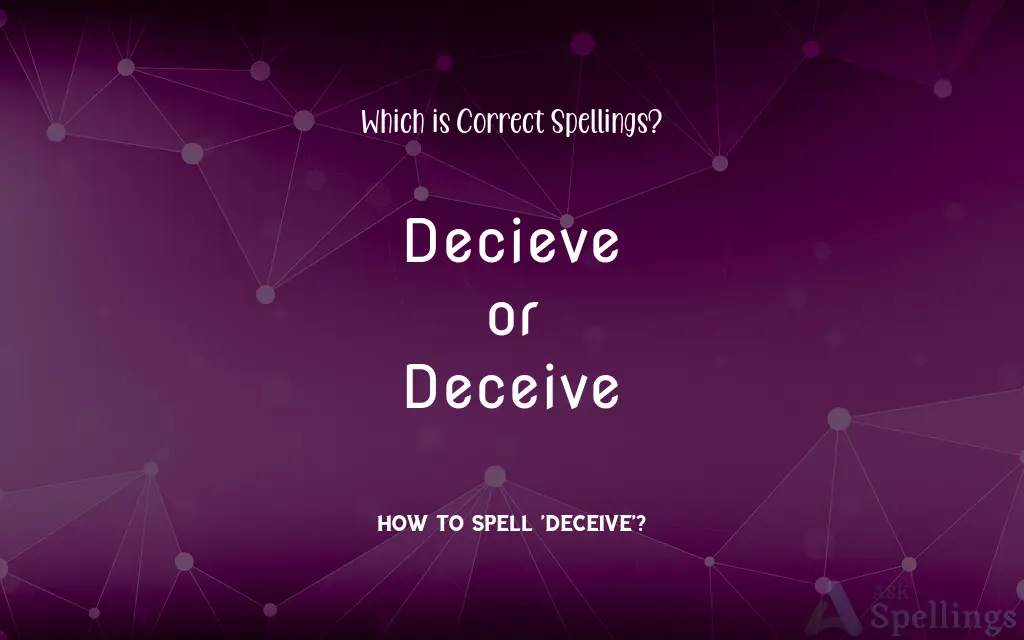
Which is correct: Decieve or Deceive
How to spell Deceive?

Decieve
Decieve Spelling

Deceive
Deceive Spelling
Table of Contents
Is it Decieve or Deceive
Word Association: Associate "deceive" with 'perceive' and 'conceive', which also have the 'ei' sequence.
Visual Cue: Visualize "deceive" as combining 'de-' and '-ceive'.
Break it Down: Consider it as 'de' + 'ceive', noting the 'ei' after 'c'.
'I' Before 'E' Except After 'C': Follow the rule: 'i' before 'e', except after 'c'.
Sound it Out: Pronounce it as "de-ceive" to remember the 'ei' sequence.
How Do You Spell Deceive Correctly?
Incorrect: They were decieved by the false advertising.
Correct: They were deceived by the false advertising.
Incorrect: He tried to decieve his teacher with a fake note.
Correct: He tried to deceive his teacher with a fake note.
Incorrect: She was easily decieved by the scam.
Correct: She was easily deceived by the scam.
Incorrect: It's wrong to decieve people for personal gain.
Correct: It's wrong to deceive people for personal gain.
Incorrect: Can you decieve someone without feeling guilty?
Correct: Can you deceive someone without feeling guilty?
Deceive Definitions
Mislead Beliefs: Deceive means to make someone believe something that is not true.
Advertisers should not deceive consumers with false claims.
Present False Appearance: Give a false impression.
The spy used a disguise to deceive his pursuers.
Cause to Misinterpret: Lead someone to interpret wrongly.
The illusion is designed to deceive the eye.
Betray Trust: Act deceptively or betray trust.
To deceive a friend is a serious betrayal.
Trick or Cheat: To trick or cheat someone.
The magician used sleight of hand to deceive the audience.
Deceive Meaning in a Sentence
One should never deceive a friend.
It's important not to deceive your parents.
Advertisements can sometimes deceive consumers.
Stories often teach us not to deceive.
The villain in the story tried to deceive everyone.
The spy used a disguise to deceive others.
You should not deceive your teacher.
Magicians use tricks to deceive the audience.
Deceive is a word that means to trick.
He tried to deceive his way out of trouble.
The secret agent had to deceive his enemies.
It's wrong to deceive people with lies.
It's easy to deceive someone with a fake smile.
To deceive someone is to be dishonest.
To deceive someone can hurt their feelings.
You can't deceive me with that excuse.
People who deceive often feel guilty later.
It's a challenge to deceive someone who knows you well.
Deceive is not a word to use lightly.
She learned that it's bad to deceive others.
The game's goal was not to deceive.
In the story, the character learned not to deceive.
It's better to be honest than to deceive.
Heroes in stories do not deceive others.
It's unkind to deceive your siblings.
Deceive is something that villains often do.
Deceive is something you should think twice about doing.
You can't deceive the truth.
Sometimes people deceive to protect others' feelings.
It's a sign of respect not to deceive.
Deceive Idioms & Phrases
Deceive the masses
To mislead a large number of people.
The propaganda was intended to deceive the masses.
Deceive into believing
To cause someone to believe something that is not true.
She was deceived into believing that the product would solve all her problems.
Easily deceived
Prone to being misled or tricked due to naivety or lack of experience.
His young cousin is easily deceived by tall tales.
Deceive with appearances
To give a false impression or mislead through outward looks.
The con artist knew how to deceive with appearances, looking every bit the successful businessman.
Self-deceive
To convince oneself of a falsehood or deny the truth to oneself.
He tends to self-deceive about his financial situation.
Deceive by omission
To mislead by not providing all of the necessary information.
He didn't lie directly, but he did deceive by omission.
Deceive the eye
To create an optical illusion or make something appear different from what it really is.
The artist's use of perspective in his painting can deceive the eye.
Deceive oneself
To be in denial or fool oneself into believing something that's not true.
You only deceive yourself if you think he's going to change.
Deceive the public
To mislead the general population or society.
The officials tried to deceive the public about the severity of the crisis.
Skillfully deceive
To mislead others in a very clever or artful way.
The spy was trained to skillfully deceive his adversaries.
Willing to deceive
Ready or inclined to mislead others.
He was willing to deceive his colleagues to get the promotion.
Intentionally deceive
To deliberately mislead or trick someone.
The company was accused of intentionally deceiving its investors.
Deceive into action
To trick someone into taking a particular action.
The email scam was designed to deceive people into giving away their personal information.
Systematically deceive
To mislead in a methodical, organized manner.
The scheme was set up to systematically deceive consumers.
Deceive for gain
To mislead others for personal benefit or profit.
They were found guilty of deceiving for gain in the fraudulent scheme.
Deceive for survival
To mislead as a means of protecting oneself or ensuring one's survival.
In the wild, some animals deceive for survival, like the chameleon changing its colors.
Deceive the senses
To cause the senses to perceive something inaccurately.
A magician's job is to deceive the senses.
Deceive with charm
To use one's charm to mislead or manipulate others.
He could deceive with charm, making people trust him instantly.
Deceive the enemy
To mislead or trick those who are opposed or hostile.
In warfare, strategies often involve tactics to deceive the enemy.
Deceive with words
To use language or speech to mislead or trick someone.
Politicians are often accused of trying to deceive with words.
Common Curiosities
How many syllables are in deceive?
Deceive has two syllables.
What is the verb form of deceive?
Deceive itself is a verb.
What is the pronunciation of deceive?
Deceive is pronounced as /dɪˈsiːv/.
Is deceive an adverb?
No, deceive is not an adverb.
What is a stressed syllable in deceive?
The stressed syllable in deceive is the second syllable: ceive.
Is deceive an abstract noun?
No, deceive is not a noun; it's a verb.
Is deceive a noun or adjective?
Deceive is a verb.
How do we divide deceive into syllables?
Deceive is divided into syllables as de-ceive.
What is the root word of deceive?
The root word of deceive is "deceive," derived from the Old French word "deceivre."
Is deceive a collective noun?
No, deceive is not a collective noun.
Is the word deceive Gerund?
The gerund form of deceive is "deceiving."
Is deceive a negative or positive word?
Deceive is generally considered a negative word.
Is deceive a vowel or consonant?
Deceive is neither a vowel nor a consonant; it is a word composed of both.
What is the opposite of deceive?
The opposite of deceive could be "inform truthfully" or "be honest."
Which determiner is used with deceive?
Determiners are not typically used with verbs like deceive.
What is the third form of deceive?
The third form (past participle) of deceive is "deceived."
How is deceive used in a sentence?
Example: "She tried not to deceive her friends with false promises."
What is the plural form of deceive?
As a verb, deceive does not have a plural form.
Which vowel is used before deceive?
There is no specific vowel rule for the word preceding deceive; it depends on the context.
Is the deceive term a metaphor?
Deceive can be used metaphorically in certain contexts.
What is the first form of deceive?
The first form (present tense) of deceive is "deceive."
What is the singular form of deceive?
Deceive does not have a singular or plural form as it is a verb.
Is the word deceive imperative?
Deceive can be used in the imperative form as a command.
Is the word “deceive” a Direct object or an Indirect object?
Deceive, being a verb, does not function as a direct or indirect object.
Which conjunction is used with deceive?
Conjunctions like "and" or "but" can be used in sentences that include deceive.
What part of speech is deceive?
Deceive is a verb.
Why is it called deceive?
It is called deceive, originating from the Old French word "deceivre," meaning to ensnare or trap.
What is the second form of deceive?
The second form (past tense) of deceive is "deceived."
Is deceive a countable noun?
Deceive is not a noun; it's a verb.
What is another term for deceive?
Another term for deceive could be "mislead" or "dupe."
Which preposition is used with deceive?
Prepositions like "into" can be used with deceive, e.g., "deceive into believing."
Which article is used with deceive?
Articles are not used with verbs like deceive.
Share Your Discovery
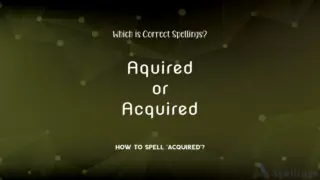
Previous Spelling
Aquired or Acquired
Next Spelling
Succesful or Successful
